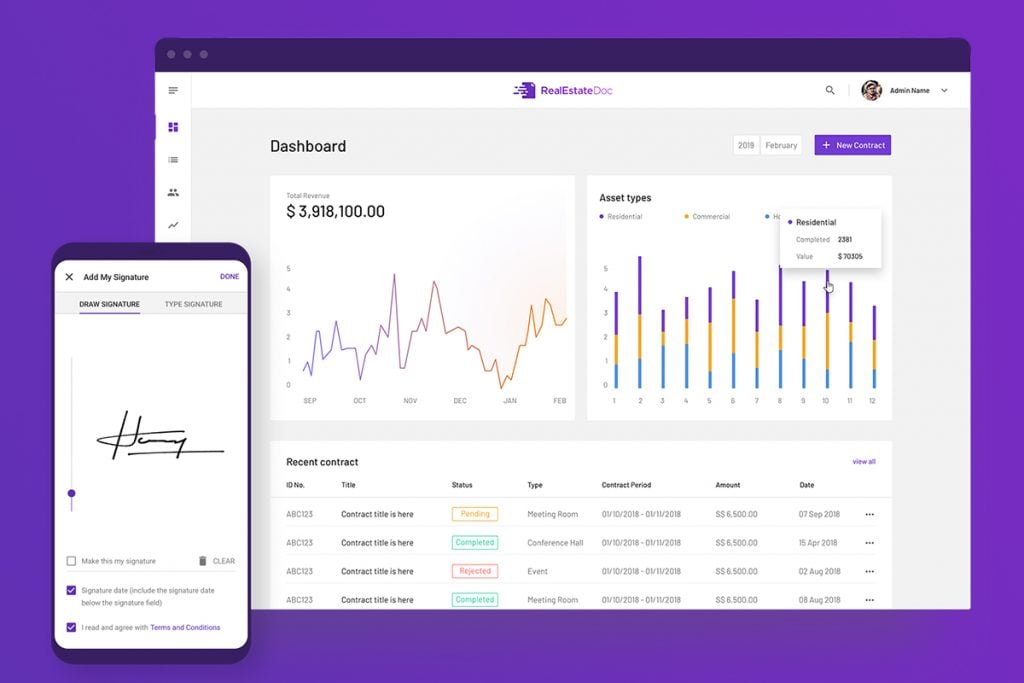How Real Estate Doc is pioneering efforts to revolutionise a traditional industry that is still dependent on old-fashioned tricks

In recent years, we have seen a clear shift in how different industries operate on the grassroots. Whether we are talking about finance, healthcare, entertainment, or even architecture and design, among many others—these different industries are employing the use of cutting-edge technology to improve their work.
Like these traditional industries, we see the same steady and clear shift surfacing in the real estate space. The thing about traditional operations is that the same problem tends to permeate across different workspaces: problems on heavy paper dependency, long processing time, propensity for human error, and many others.
On the backend, the status quo of the real estate industry looks bleak with current backend systems being incompatible to each other, making it difficult to sync data to the incumbent systems. Executives have to spend extra time double keying data into the backend systems from the physical documents, thus, leading to human errors.
Thankfully, there are efforts springing here and there to change the business landscape by means of digitalisation.
Game changers in the real estate space
Pioneering these efforts is Real Estate Doc—a frontend ERP-lite space and lease management platform that currently focuses on the real estate space.
Real Estate Doc (or RED) allows for digital contracts, digital signing, and digital payments, thereby eliminating the need for paper-based contracts and cuts down sales turnaround time to just 2 days (unlike the typical 2 to 3 weeks it used to take for retail leasing contracts to be completed).
From deal origination to digital contract acceptance and payments, Real Estate Doc’s modular platform serves to drive business flow and streamline work processes through digital automation. All transactions and digital contracts are also recorded in an immutable ledger of records through blockchain technology for the landlord’s easy reference and retrieval.
Also read: 4 good reasons why commercial real estate should use blockchain
More than that, Real Estate Doc promotes integration into existing backend systems, enabling a straight-through processing of data from digital contracts. This completely eliminates the need for double keying and transcription, and streamlines the long and tedious process of data collection.
One of their best features so far is their data analytics. While data analytics in traditional real estate practices are often done manually, resulting in long processing time, with Real Estate Doc, the processing of data into useful analytics is done automatically. This allows for better business decision-making for mall managers, for example, without having to go through the rigorous process of manually keying data into spreadsheets.
How the idea to revolutionise the real estate space came to be
The folks behind Real Estate Doc started their journey in the tech startup ecosystem with Averspace, a startup that operated as a direct property portal with a focus on digital documentation.
Having been involved in the Real Estate Industry Transformation Map (RE ITM) meeting with the government, they had the opportunity to meet with property developers who were interested in their digital solution.
Because of their collective experiences particularly in digital documentation, plus their in-depth understanding of the market and its specific workflows and processes, they have developed a focus on the real estate B2B space.
What Real Estate Doc has accomplished so far and where they are headed
As of today, Real Estate Doc has penetrated key spaces such as Frasers Property Singapore. Currently, their platform has gone live in eight of Frasers’ shopping malls across Singapore.
Going beyond the present, Real Estate Doc is currently in talks with other major property developers in Singapore and the rest of the Southeast Asian region. The plan to expand to the rest of the Asia Pacific region is also set for the next three years—with further developments and improvements of their product to continue providing solution to more problems within the retail industry.
Currently, the Southeast Asian real estate spectrum across the region is gaining momentum with regards to digital documentation and signing laws. Soon, we can expect widespread adoption to take place due to the substantial savings in time and money that digitalisation promises.
This gives the folks at Real Estate Doc optimistic feelings for the future of real estate. Similarly, traditional real estate spaces can look forward to better, more streamlined, and more efficient operations within the next few years.
The post Changing up the real estate industry one digital solution at a time appeared first on e27.